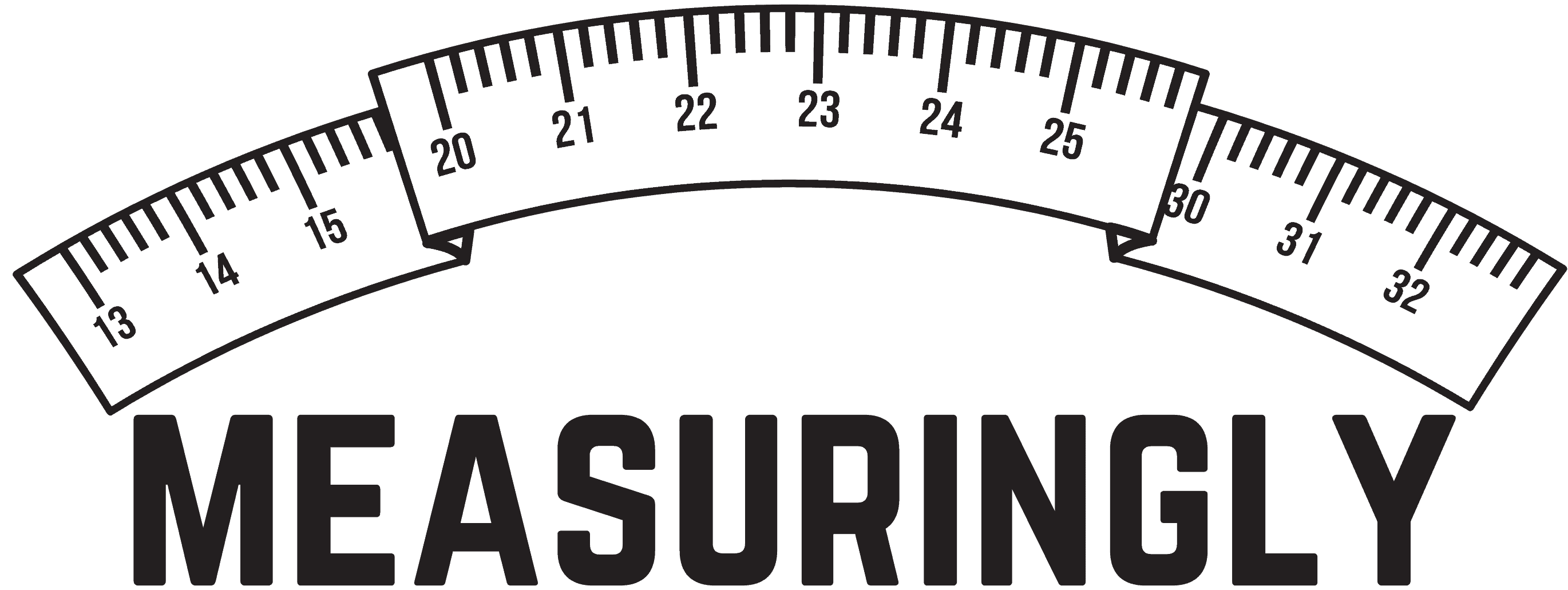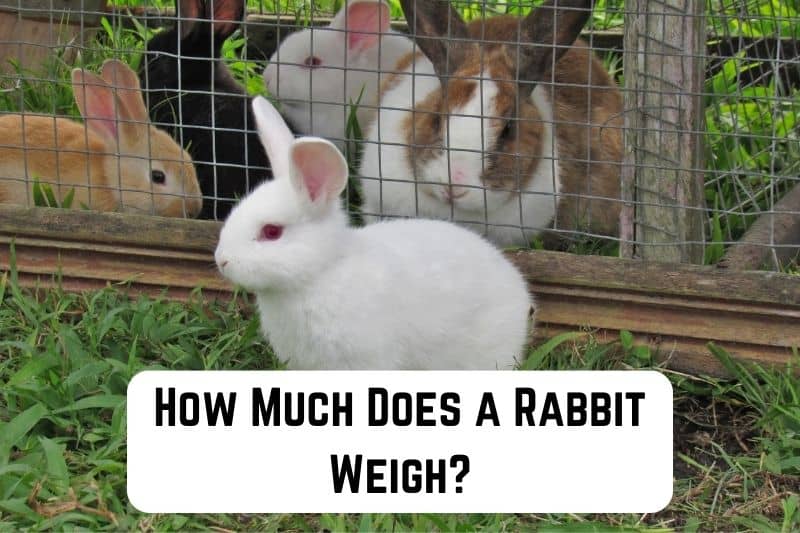When considering bringing a pet rabbit into your home, you might wonder how much a rabbit weighs. Knowing their weight can help you better estimate the size of their enclosure, the amount of food they require, and other factors related to their care.
Rabbits come in various breeds, each with its unique range of weight. As a prospective rabbit owner, it’s essential to understand how your chosen breed’s weight may affect its care and living space requirements.
For some rabbit breeds, size can be important in determining their health and overall well-being. With proper care, you can help ensure your fluffy companion maintains an appropriate and healthy weight, keeping them in top condition to enjoy a happy life by your side.
Read: How Much Do Ducks Weigh? (Weight of Common Breeds)
Rabbits come in various sizes, and their weights can differ significantly. Dwarf rabbits usually weigh 2 – 3 pounds (0.9 – 1.4 kg). Medium-sized rabbits typically weigh between 4 – 6 pounds (1.8 – 2.7 kg). Giant rabbit breeds can weigh 12 pounds (5.4 kg) up to 20 pounds (9 kg) or more!
Measuringly.com
Basic Weight Information of a Rabbit
Average Weight
Rabbits come in various sizes, and their weights can differ significantly. Dwarf rabbits usually weigh 2 – 3 pounds (0.9 – 1.4 kg). These adorable little bunnies are easy to handle and perfect for small living spaces.
Medium-sized rabbits typically weigh between 4 – 6 pounds (1.8 – 2.7 kg). This size range includes some of the most popular breeds, such as the Dutch rabbit and the Mini Lop. They are a great option if you’re looking for a manageable pet with a bit more presence than a dwarf rabbit.
On a larger scale, giant rabbit breeds can weigh 12 pounds (5.4 kg) up to 20 pounds (9 kg) or more! Breeds like the Flemish Giant and the French Lop are examples of these big bunnies. A giant breed might be suitable if you have plenty of space and want a rabbit that makes a statement.
Remember, it’s essential to maintain a healthy weight for your rabbit, regardless of size or breed. Providing the appropriate diet and exercise opportunities will help keep your furry friend in tip-top shape!

Remember that these weights are just general guidelines; individual rabbits within a breed may weigh more or less than the ranges mentioned.
Genetics, diet, and overall health can affect a rabbit’s weight. If you’re concerned about your rabbit’s weight or growth, it’s always a good idea to consult a veterinarian with rabbit experience.
How Much Does a Flemish Giant Rabbit Weigh?

Flemish Giant Rabbits are the largest breed of domestic rabbits. They are known for their size and friendly personalities. As a rabbit enthusiast, you might be wondering about the weight of this impressive breed.
Adult Flemish Giant Rabbit weighs between 14 and 22 pounds (6.4 to 10 kg). However, some individuals can grow even larger, with weights exceeding 25 pounds (11 kg). Males, or bucks, tend to weigh more than females or does.
When raising a Flemish Giant Rabbit, it is crucial to ensure it reaches a healthy weight for its breed. Their weight will grow steadily through adolescence, with males reaching maturity around eight months and females around 14 months.
You can monitor your rabbit’s weight by acquiring a scale and weighing them regularly. Keep track of the data and consider seeking guidance from your veterinarian if you notice any rapid changes or if they seem underweight.
While these giant bunnies are undeniably beautiful and fascinating, their size can lead to unique challenges. Their enormous weight stresses their bones and joints more than smaller breeds. As a result, proper care and attention should be given to their housing and diet.
Giving them enough space for exercise and feeding them high-quality hay and pellets will support their overall health, ensuring the best possible life for your giant rabbit.
Factors Determining Rabbit’s Weight

Environment
Various environmental factors can influence your rabbit’s weight. For instance, food availability is crucial in determining a rabbit’s weight. If your rabbit has access to a consistent and nutritious diet, it is more likely to maintain a healthy weight. On the other hand, limited food resources or an imbalanced diet can lead to weight loss or obesity.
Another critical aspect to consider is the living conditions of your rabbit. A comfortable, secure, and clean environment promotes a better quality of life, which can ultimately affect your rabbit’s weight. Providing your furry friend with enough space to move around and exercise is essential.
Moreover, the climate and temperature of your rabbit’s environment can impact its weight. Rabbits living in colder conditions may need to consume more food for energy, which could lead to weight gain.
Keep in mind the following environmental factors while caring for your rabbit:
- Food availability and quality
- Living conditions (cleanliness and space)
- Climate and temperature
Measuring Rabbit’s Weight

Weighing your rabbit accurately is essential for many reasons, such as monitoring their health, proper diet, and dosage of medications. So, let’s go through a few key points to measure your rabbit’s weight effectively.
First, ensure you have a reliable digital scale. A suitable scale for rabbits should be able to measure up to 12 pounds (5 kg) with an accuracy of at least 1 oz (30g). This can guarantee precise weight measurements for various breeds of rabbits.
Setting a routine is a good idea when you start weighing your rabbit. Weigh your rabbit regularly, preferably once a month, to keep track of any fluctuations in their weight. Moreover, it would be best to weigh your rabbit simultaneously daily to maintain consistency.
Here’s a step-by-step guide to weighing your rabbit:
- Power on the scale: Turn on the digital scale and ensure it’s set to zero. If your scale has a “tare” function, you can place an empty container on the scale and tare it so that it only measures your rabbit’s weight.
- Place your rabbit on the scale: Gently hold your rabbit and place them in the container or on the weighing surface. Make sure your rabbit is calm and settled during this process, as sudden movements can affect the weight reading.
- Record the weight: Take note of the weight displayed on the scale. For future reference, you can record this information somewhere safe, like a rabbit care journal or spreadsheet.
Importance of Monitoring Rabbit’s Weight
As a rabbit owner, monitoring your rabbit’s weight regularly is essential. Keeping track of their weight can give you valuable insights into their health and well-being. A healthy weight is crucial for your rabbit’s happiness and longevity.
When you regularly monitor your rabbit’s weight, it’s easier to spot any sudden weight changes. Such fluctuations indicate an underlying health issue, like dental problems or gastrointestinal stasis. Detecting these issues early allows for prompt medical intervention, improving your rabbit’s chances of recovery.
In addition to health issues, monitoring your rabbit’s weight can help you manage their diet. Different rabbit breeds have varying nutritional requirements, and knowing your rabbit’s ideal weight range can help you adjust its diet accordingly.
For example, if you notice your rabbit gaining excess weight, reduce the number of treats or pellets you provide. On the other hand, a consistently underweight rabbit may need more nutritionally-dense foods to maintain a proper weight.
Regular weight monitoring also helps prevent obesity, a common issue in domestic rabbits. Overweight rabbits are at a higher risk for developing joint pain, arthritis, and heart problems. Maintaining an appropriate weight extends your rabbit’s lifespan and ensures a better quality of life.
Read: How Much Does a Sock Weigh? (Quick Answer)
Common Weight Issues in Rabbits
Underweight
As a rabbit owner, you may notice your rabbit being underweight. A low body weight in rabbits could indicate several underlying health issues or improper nutrition. It’s essential to identify the causes and address the issue appropriately.
First, provide a diet that meets your rabbit’s nutritional needs. This should include unlimited hay, a small amount of fresh vegetables, and a limited number of daily pellets. You can gradually increase the pellets portion if your rabbit is underweight – but do so cautiously.
Regularly monitoring your rabbit’s eating habits and consulting with a veterinarian may also help uncover health issues such as dental problems, parasites, or infections. Certain conditions, like gastrointestinal stasis, can also lead to reduced appetite and weight loss.
Ensuring your rabbit has a clean, comfortable, and stress-free environment is essential. Rabbits are sensitive animals, and external stress factors can contribute to low body weight. Providing mental stimulation with toys and social interaction can help maintain their overall well-being.







